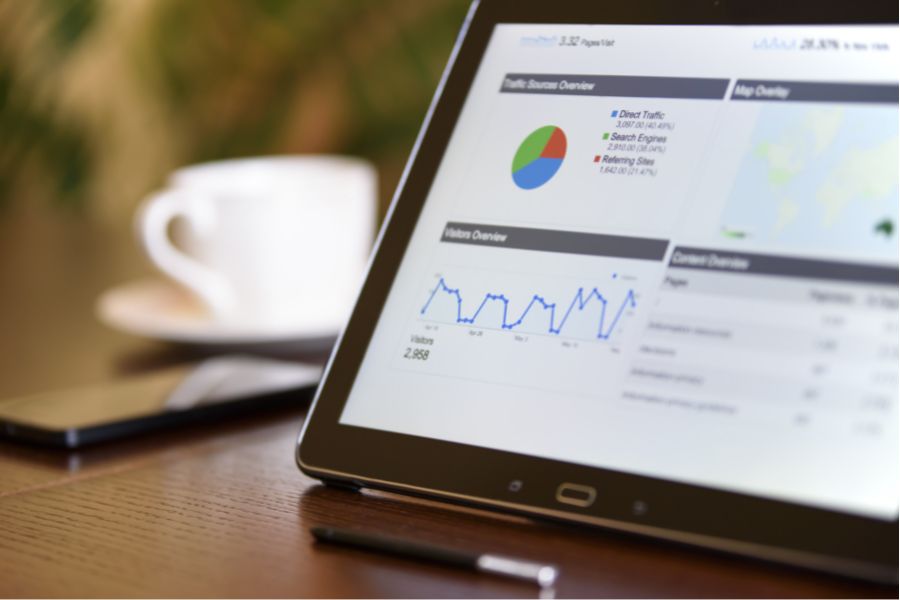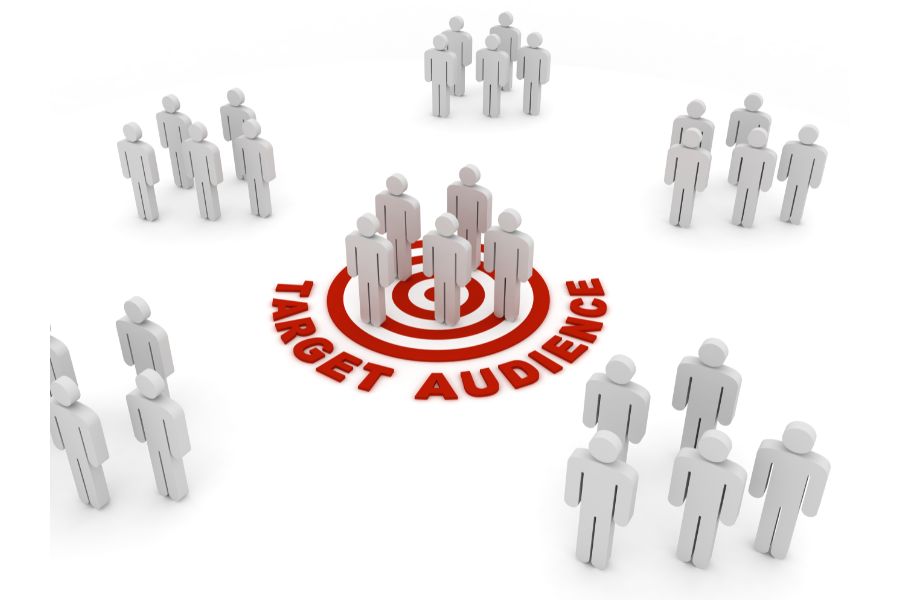Disclaimer: We sometimes use affiliate links in our content. For more information, visit our Disclaimer Page.
There are a lot of discussions these days about digital marketing versus social media marketing. Which one is better? What’s the difference? And which one should you be using for your business?
In this blog post, we will explore the differences between digital marketing and social media marketing and help you decide which type of marketing is best for your business.
How Social Media Marketing Differs from Digital Marketing
With the rise of social media, many businesses have been asking: “Do we still need digital marketing? Can’t we just do social media marketing?” The answer is that social media marketing is a subset of digital marketing. Here’s a breakdown of how the two differ.
Digital marketing is an umbrella term that covers all forms of digital communication. This includes email marketing, search engine optimization (SEO), social media marketing, and even paid advertising like Google AdWords. In addition, any marketing that uses digital channels to reach consumers is considered digital marketing.
It includes online and offline channels such as TV, podcasts, billboards, commercial ads, text messaging, and many more.
The purpose of digital marketing is to reach a larger audience with your marketing message. With so many people using the internet and social media, businesses have a unique opportunity to get more consumers.
By using digital channels, businesses can target their audience more precisely and reach them where they are most likely to be receptive to your message.
Social media marketing is a specific type of digital marketing that uses social networking sites as its central platform. This could include platforms like Facebook, Twitter, LinkedIn, or Instagram. The goal of social media marketing is to build relationships with potential and current customers by engaging with them on a personal level.
The purpose of social media marketing is to create a connection with your audience. This connection can build trust, loyalty, and brand awareness. In addition, engaging with your audience on social media can humanize your brand and make it more relatable to your customers.
The Benefits of Digital Marketing and Social Media Marketing
In today’s day and age, businesses need to have a solid digital presence. There are many benefits of digital marketing, including increased brand awareness, more leads and conversions, and improved search engine rankings. Social media marketing can help you build relationships with your customers, create a community around your brand, and generate word-of-mouth marketing.
It’s crucial to stay up-to-date with the latest strategies and tools to effectively leverage digital marketing and social media. Fortunately, there are abundant resources available for businesses to enhance their digital marketing and social media efforts, such as online courses, industry blogs, and social media analytics platforms, empowering them to optimize their campaigns and achieve better results.
Benefits of Digital Marketing

Digital marketing is the process of using online channels to promote and sell products or services. These online channels include search engines like Google and Bing, social media platforms like Facebook and Instagram, and websites like Amazon and eBay. There are many benefits of digital marketing, which include:
1. Reach a large audience with relatively little effort. With digital marketing campaigns, you can reach a global audience quickly and easily. You don’t need to print flyers or set up booths to get people’s attention. All you need is a solid online presence.
2. Cost-effective. Digital marketing is one of the most cost-effective ways to market your business. You can reach a large number of people without breaking the bank.
3. Personalized messages. You can personalize your messages to target specific demographics, interests, and even individual customers. This allows you to create highly effective marketing campaigns.
4. Improved ROI. It often has a higher ROI than traditional marketing methods. This means you can get more bang for your buck with digital marketing.
5. Quantifiable Conversions. Digital marketing is easy to track and quantify. This makes it easy to see how well your campaigns are performing and make necessary adjustments.
Benefits of Social Media Marketing

Social media marketing is the process of using social media platforms to promote and sell products or services. Social media platforms include Facebook, Twitter, LinkedIn, Instagram, Snapchat, Pinterest, and YouTube. There are many benefits of social media marketing which include:
1. Increased brand awareness. There are plenty of ways for brands to increase their visibility and reach through social media channels. People will be likelier to see and remember your brand when you post engaging content.
2. Improved customer service. You can respond to customer concerns and questions quickly and efficiently using social media. This can help improve your customer service and build trust with your audience.
3. Increased website traffic. It doesn’t matter if your website is small or big; you can use social media as a way to drive traffic to it. If you post links to your website on social media, people can click through to it.
4. Better SEO. It is well known that social media campaigns can be very effective in improving your website’s search engine optimization (SEO). Posting relevant and keyword-rich content on social media can help improve your website’s ranking on search engine results pages.
5. More leads and sales. Your business can generate leads and sales with social media ads and contests. By encouraging people to take action, you can get them to buy.
The Difference Between Digital Marketing and Social Media Marketing
Now that we have a basic understanding of each, let’s take a closer look at the key ways in which digital marketing and social media marketing differ:
- The scope: As we mentioned above, digital marketing is a much broader term than social media marketing. It includes anything and everything that has to do with using digital technology for marketing purposes. Social media marketing, on the other hand, refers specifically to making use of social media platforms to reach potential and current customers.
- The focus: Another key difference between these two types of marketing is the focus. With digital marketing, businesses can focus on various objectives, including increasing brand awareness, generating leads, or driving sales. Social media marketing also can achieve all of these objectives—but its primary focus is usually on building relationships with potential and current customers rather than selling them something outright.
- The tools: Because digital marketing is such a broad term, businesses can use many tools to achieve their desired results. These tools can range from email campaigns to targeted online ads to SEO-optimized website content. Social media platforms like Facebook and Twitter also offer their own unique set of tools that businesses can use for social media marketing purposes—tools like Facebook Ads and Twitter Ads.
- The approach: When it comes down to it, the main difference between digital marketing and social media marketing is the approach. Digital marketers tend to take a more direct approach when trying to sell something to potential customers—they’ll often include calls-to-action (CTAs) in their emails or ads that encourage recipients to buy what they’re selling. Social media marketers, on the other hand, tend to take a more indirect approach by building relationships with potential customers first and only selling them something once they’ve established trust and credibility.
Related: Marketing Objective Examples
8 Types of Digital Marketing
There are many different types of digital marketing, but some of the most common ones include the following:
- Search engine optimization (SEO): Optimizing your website to rank higher on search engine results pages (SERPs).
- Search engine marketing (SEM): This is paying for ads that appear in SERPs.
- Content marketing: This is creating and distributing valuable, relevant, and consistent content to attract and retain a clearly defined audience — and, ultimately, to drive profitable customer action.
- Direct mail: This is the process of sending marketing materials.
- Display advertising: Paying for space on websites, social media platforms, and other digital channels to show display ads.
- Email marketing is sending marketing messages via email to customers and prospects.
- Mobile marketing: This is reaching consumers on their mobile devices.
- Social media marketing uses social media platforms to connect with your audience and promote your brand or product.
8 Types of Social Media Marketing
Social media marketing isn’t just the likes of Facebook, Twitter, and Instagram. It also encompasses the following:
- Profile optimization
- Content marketing
- Advertising
- Social media contests
- Influencer marketing
- User-generated content (UGC)
- Live streaming
- Building your following
The most popular social media platforms are:
- Snapchat
- Google+
- Tumblr
- YouTube
How can you use each type of marketing to reach your target audience?

Marketing is vital for any business that wants to succeed. But first, you need to use the right marketing tools to reach your target audience. That means using digital marketing and social media marketing. But how can you use each type of marketing to reach your target audience? Let’s take a look.
→ Digital Marketing
The first step to starting a digital marketing campaign is to develop a digital marketing strategy. This will help you determine your goals and objectives and plan your campaigns. Once you have a solid system, you can start implementing your campaigns.
You’ll need to create high-quality content, build an audience, and track your results to get started. But, if you can do these things, you’ll be well on your way to success with digital marketing.
→ Social Media Marketing
The principles of digital marketing remain the same, except they are only applied to social networking sites such as Facebook, Twitter, Pinterest, YouTube, TikTok, Snapchat, LinkedIn, and other online social media channels.
A social media marketing campaign includes but is not limited to, the following elements. A marketing strategy needs to take into consideration the following factors:
- Multichannel marketing engagement with customers
- Analyzing followers and conversions
- Marketing with influencers
- Paid and organic marketing
- Publication and planning of content
- Using direct messages and polls to engage the community
- Analyses of analytics
- Follower engagement is high in the community
Verdict: Digital marketing is broader and can encompass many different types of campaigns, while social media marketing is more specific and only applies to social networking sites. However, both types of marketing require a solid strategy, high-quality content, customer engagement, and analytics to succeed.

The best practices for digital and social media marketing are largely the same. However, there are a few key differences:
Digital media marketing
There are a few best practices for digital marketing that can help you get the most out of your campaigns:
- Start with a solid strategy: As with any marketing effort, it’s essential to start with a solid strategy. First, determine your goals and objectives, and plan your campaigns accordingly.
- Create high-quality content: To succeed with digital marketing, you must create high-quality content that interests your audience. This content should be informative, engaging, and relevant to your target demographic.
- Build an audience: One of the critical parts of digital marketing is building an audience. You need to find people interested in what you’re selling and get them to follow you on social media or subscribe to your email list.
Related: Key Performance Indicators for Digital Marketing
Social media marketing:
Some best practices for social media marketing are:
- Define your goals and objectives: Before starting your social media marketing, you must know what you want to achieve. Do you want to increase brand awareness? Drive website traffic? Generate leads or sales? Once you know your goals, you can create a social media marketing strategy to help you achieve them.
- Research your audience: It’s also important to know your target audience before starting social media marketing. By understanding your audience, you’ll be able to create content that appeals to them and better engage with them on social media.
- Create quality content: Content is king in social media marketing. If you want people to engage with your brand on social media, you need to create high-quality content that is relevant and interesting to them.
- Be social: social media is all about being social. You need to engage with your audience on a personal level to build relationships with them. Don’t be afraid to respond to comments, share other people’s content, and start conversations.
- Monitor your activity: Last, monitoring your social media activity and tracking your results is essential. This will help you see what’s working and what’s not so you can adjust your strategy accordingly.
Verdict: Digital marketing, as you can see, is very similar to social media marketing because both practice the same activities. Still, it’s important to understand the difference to ensure your strategy is tailored to your specific goals rather than a strategy that can be applied to all social media platforms.
Which marketing method is the best for the future?

Businesses can use many marketing methods to reach their target consumers. Two of the most popular methods are digital marketing and social media marketing. So, which one is the best? Let’s look at each method and see which one has the brightest future.
Digital Marketing
The future of digital marketing is fascinating. The possibilities are endless, with new technologies and platforms being constantly developed. Here are some of the things we can expect to see in the future of digital marketing:
- Augmented reality (AR) and virtual reality (VR)
- Artificial intelligence (AI)
- Big data
- Blockchain
- Chatbots
- Conversational marketing
- Influencer marketing
- Interactive content
- Micro-moments
- Personalization
Social Media Marketing
The future of social media marketing is inspiring. The possibilities are endless, with new technologies and platforms being constantly developed. Here are some of the things we can expect to see in the future of social media marketing:
- Augmented reality (AR)
- Chatbots
- Collaborative content
- Ephemeral content
- Influencer marketing
- Micro-influencers
- Personalization
- Shoppable posts
- Stories
- User-generated content (UGC)
Verdict: Digital marketing has a brighter future when compared to social media marketing. This is because digital marketing offers more opportunities for interactivity, personalization, and the use of AI and big data.
Additionally, digital marketing is not limited to social media platforms – it can encompass other channels such as email, website banner ads, and more. Social media marketing will continue to be important, but it is not likely to see the same level of innovation and growth as digital marketing.
Online vs. Offline Digital Marketing
In the early days of digital marketing, the terms “online” and “offline” were used to distinguish between digital marketing that took place on the internet and digital marketing that took place offline. However, as digital marketing has evolved, the line between online and offline has become blurred. Today, most businesses use a mix of both online and offline digital marketing tactics to reach their target audiences.
Let’s take a closer look at the differences between online and offline digital marketing:
Online digital marketing
Online digital marketing channels are often more affordable and more accessible to track than offline channels. This is why many small businesses focus their marketing efforts online.
Several online marketing channels include:
- Search engine optimization (SEO)
- Search engine marketing (SEM)
- Content marketing
- Social media marketing
- Email marketing
- Pay-per-click (PPC) advertising
- Affiliate marketing
- Influencer marketing
Offline digital marketing
Offline virtual marketing is frequently brushed off as conventional or ineffective. But, a number of the largest brands nowadays, including Coca-Cola and Mcdonald’s, nevertheless spend tens of millions on the billboard and high-time television commercials every 12 months, for a terrific reason.
Offline virtual advertising channels may be compelling when used well.
Examples encompass:
- Online radio advertisements and radio show promotions (radio)
- LED billboards in excessive-traffic regions (more suitable offline marketing)
- Cable tv commercials and streaming services together with Netflix (television)
- Phone advertising and marketing through bloodless calling, texting, and in-app commercials (cellphone advertising)
These procedures are often notably robust. However, they may be high-priced. This is why many startups and small companies choose online advertising instead.
Now that you know the differences between both let’s take a look at the benefits of digital marketing over social media marketing.
1. You Own Your Channels
You own those channels when you invest in digital marketing channels such as email or your website. This means you have complete control over the content you publish and how you communicate with your audience.
You don’t have complete control over social media platforms such as Facebook and Twitter because those platforms can (and do) change their algorithms frequently, impacting how your audience sees your content.
2. You Can Reach a Wider Audience
You don’t have to reach only people who use social media with digital marketing. Using various online channels, you can reach people wherever they are, from their favorite websites to their inboxes—which gives you a much wider audience to target than social media alone.
3. You Can Build Long-Term Relationships
You can build long-term relationships with your customers through ongoing communication. On the other hand, social media marketing can be difficult to build long-term relationships because you’re limited in the amount (and type) of information you can share on most platforms.
4. You Have More Control Over Your Budget
Due to the variety of ways to measure the return on investment (ROI), digital marketing gives you more control over your budget. Whenever you use social media marketing, it’s hard to measure your ROI because the data you collect comes from third-party platforms, which aren’t always reliable or accurate.
Related: Best Ways to Market Your Small Business
Conclusion
As a business owner, it’s essential to understand the difference between digital marketing and social media marketing to make an informed decision about which type of marketing is right for your business.
We hope this blog post has helped you better understand the distinction between these two types of marketing and how to use them to benefit your business. Please tell us in the comment section which type of marketing you prefer for your business: digital or social media.





